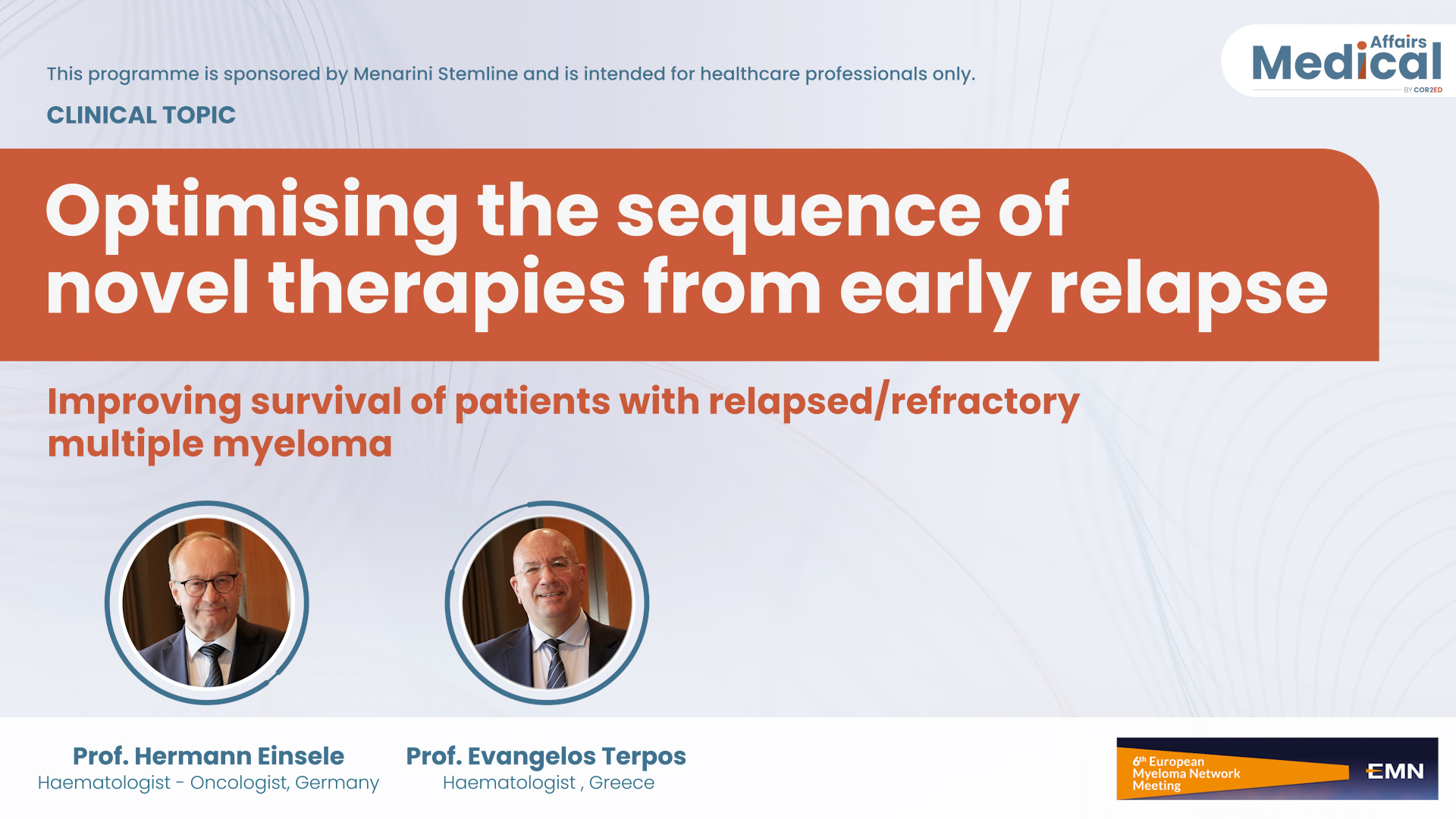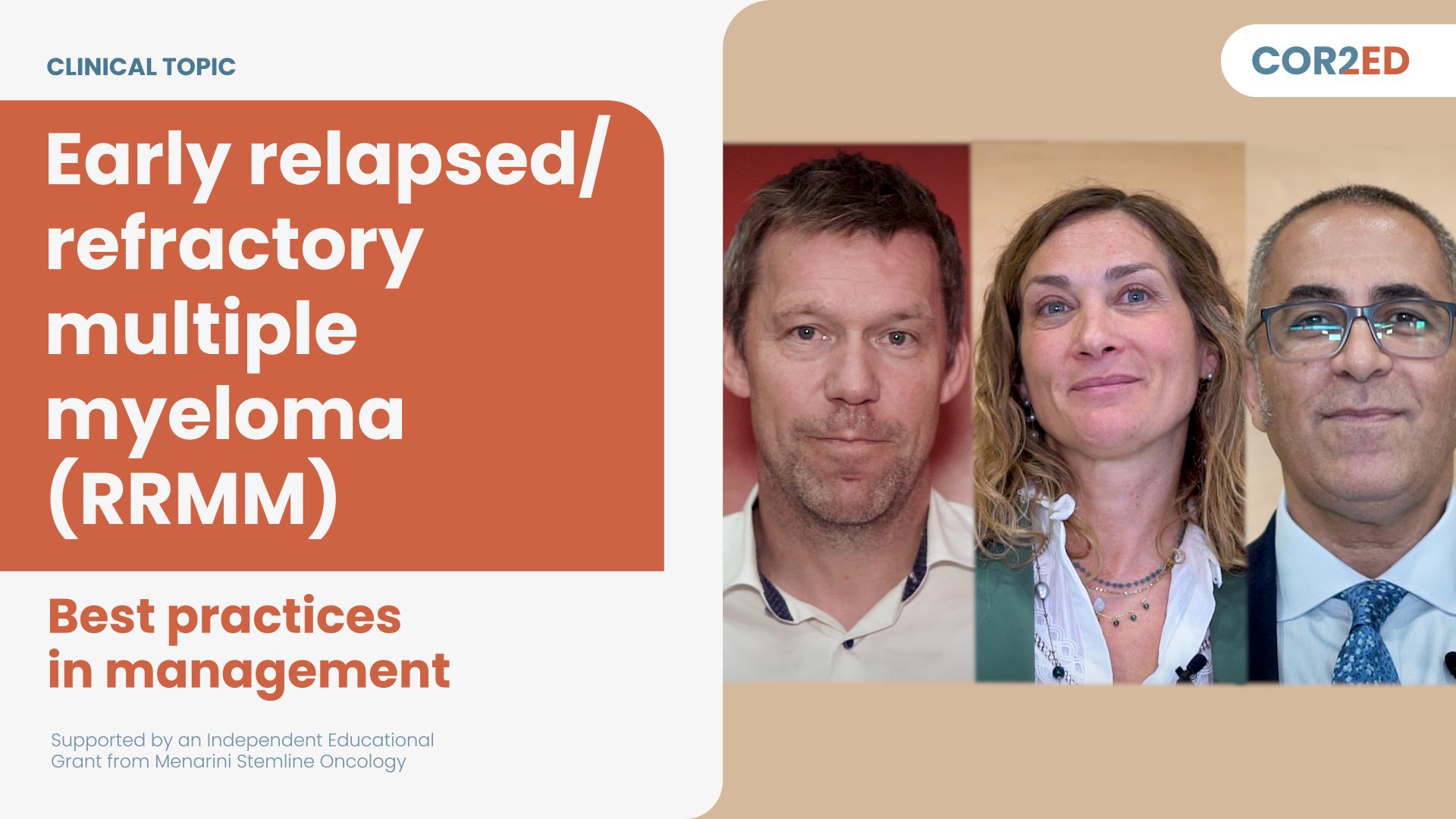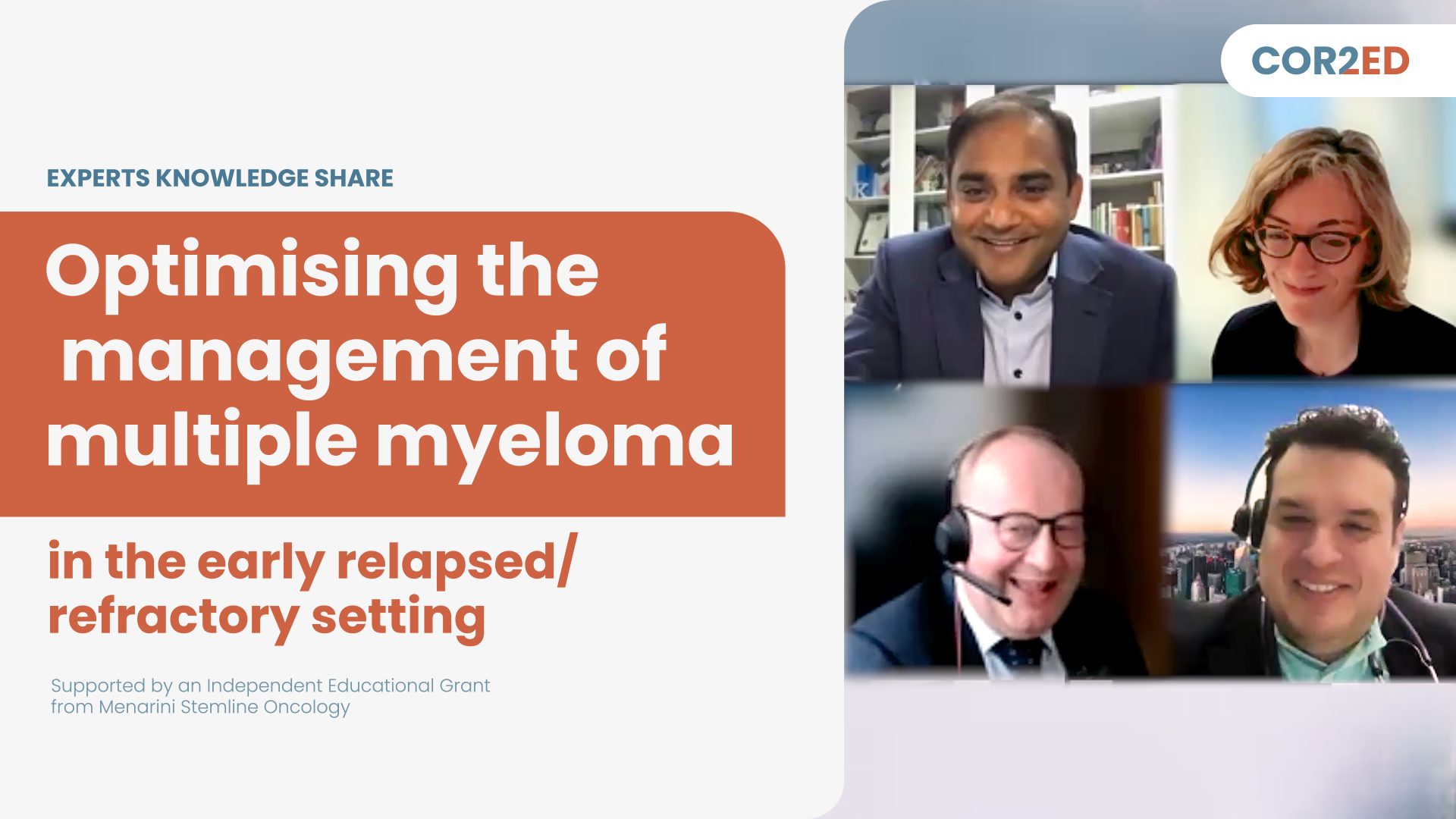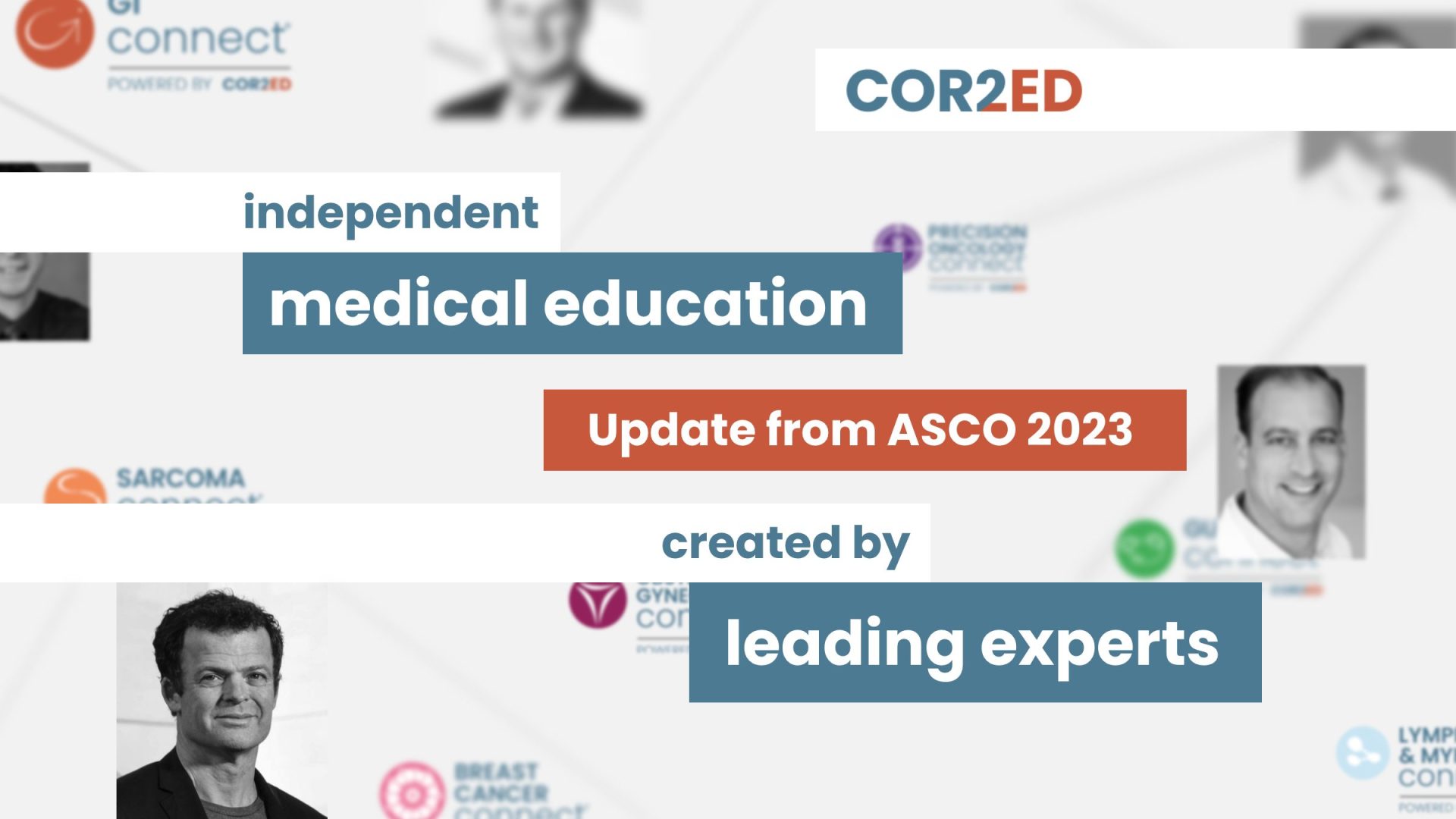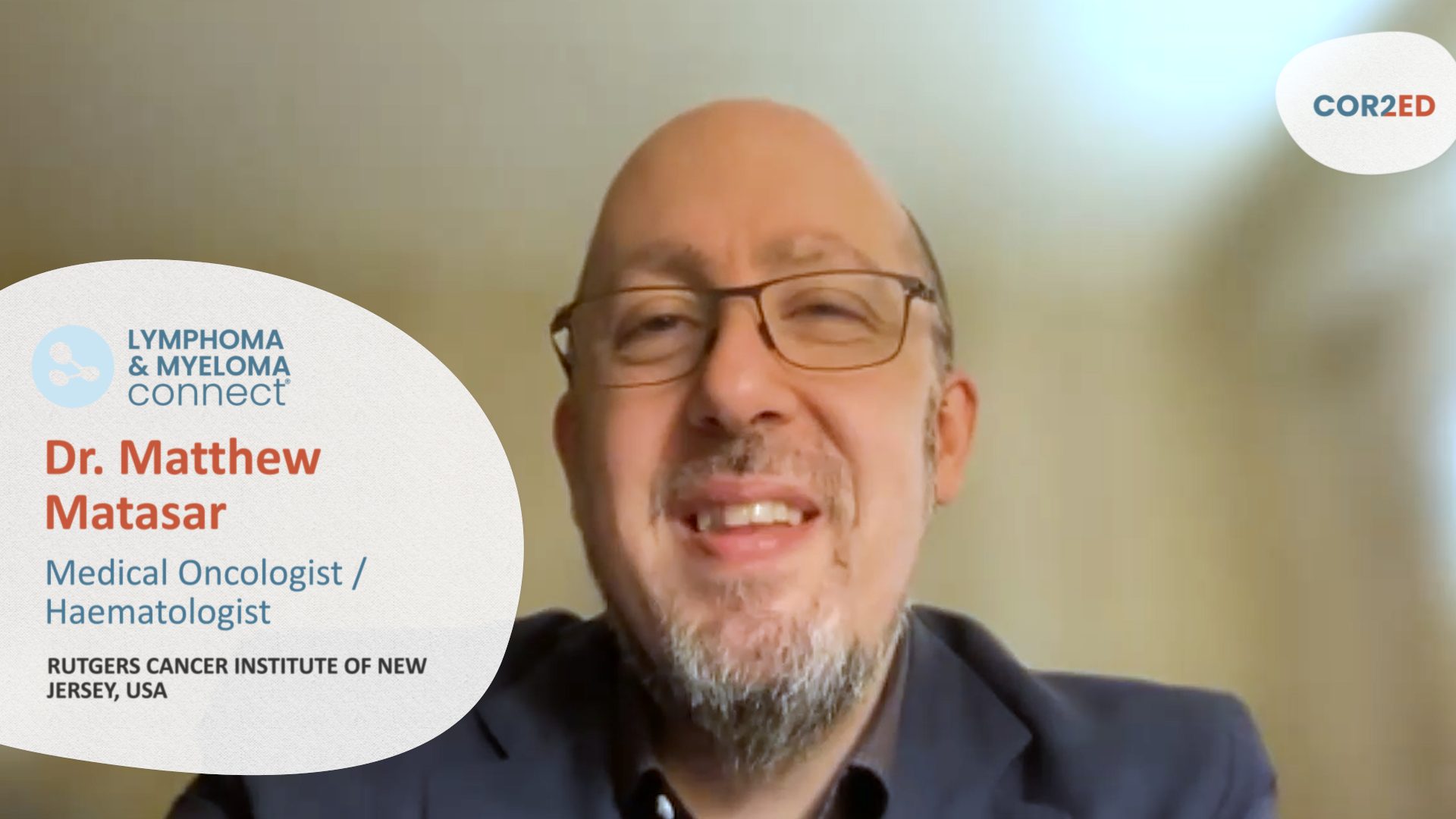Access the paper and download the slides
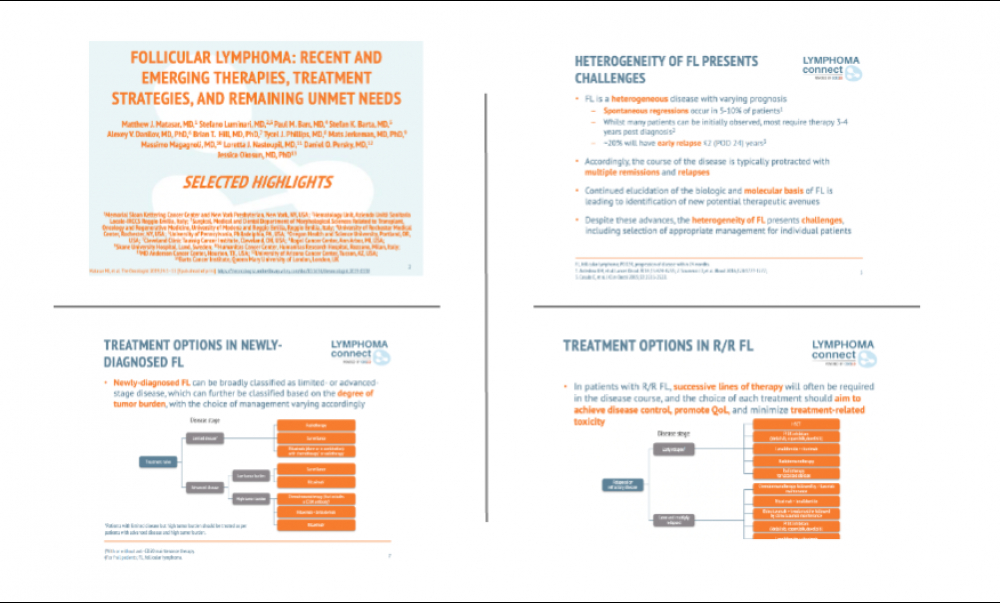
Alexey V. Danilov, MD, PhD, is a Professor of Medicine at the City of Hope National Medical Center, in Los Angeles, CA. He earned his medical degree and PhD at Yaroslavl State Medical Academy in Russia and completed a fellowship in hematology/oncology at Tufts Medical Center, in Boston, Massachusetts. Dr Danilov runs an independently funded clinical/translational program in chronic lymphocytic leukemia (CLL) and non-Hodgkin lymphoma (NHL) that bridges the understanding of B-cell biology with early clinical evaluation of novel therapeutics. He spearheads a translational and early-phase therapeutics effort in B-cell malignancies at the Knight Cancer Institute. In the laboratory, he focuses on targeting stromal-mediated pro-survival signaling in lymphoid malignancies. He has characterized promising therapeutic agents with regard to their mechanism of action and resistance, ushering them into early-phase clinical trials in CLL and NHL. He seeks to translate his findings to clinical care by developing protocols that advance current treatment paradigms. His work has received support from the Leukemia & Lymphoma Society, Lymphoma Research Foundation, the National Cancer Institute, and the Southwest Oncology Group, among other funding organizations. He has been published in numerous peer-reviewed journals including Clinical Cancer Research, Cancer Research, Haematologica, Molecular Cancer Therapeutics, Journal of Immunology and others. Among numerous speaking engagements, Dr Danilov has chaired sessions at the American Society of Hematology Annual Meetings, and has given visiting professor lectures in London and New York. He is a member of the American Society of Hematology and the European Hematology Association. Dr Danilov is a Leukemia & Lymphoma Society Scholar in Clinical Research and a Lymphoma Research Foundation Clinical Investigator.
Abbvie, AstraZeneca, Bayer Oncology, BiGene, Bristol Myers Squibb, Genentech, MEI, SecuraBio, Takeda Oncology and TG Theraputics
Loretta Nastoupil, MD, completed her undergraduate degree at Texas Tech Health Sciences Center, graduating summa cum laude in 2003. She obtained her medical degree from the University of Texas Southwestern Medical School at Dallas in 2007. Dr Nastoupil completed her internship and internal medicine residency at Washington University, Barnes-Jewish Hospital in St. Louis, Missouri. Following residency, she completed a hematology-medical oncology fellowship at Emory University, serving as chief fellow her last year. Dr Nastoupil joined the faculty at MD Anderson Cancer Center in 2013 as an assistant professor in the Department of Lymphoma/Myeloma. Dr Nastoupil is a clinical researcher with a focus on lymphoma epidemiology and outcomes. The goal of her research is to identify risk factors associated with lymphoma and eliminate disparities in outcomes to improve survival for all patients with lymphoma. She is actively involved in early phase drug development as well as immune therapy studies in indolent lymphoma. She is also actively exploring predictive biomarkers with modern therapy in lymphoma.
Bayer, BMS, Genentech, Epizyme,Gilead/Kite, Novartis, TG Theraputics and Pfizer.
Dr Matthew Matasar is a board-certified medical oncologist/hematologist, who received his undergraduate and medical degrees from Harvard University. His internal medicine training was completed at Columbia Presbyterian, where he earned a Master’s in biostatistics, while serving as Chief Resident. His fellowship training was in medical oncology at Memorial Sloan Kettering Cancer Center, where he subsequently joined faculty on the Lymphoma and Adult BMT services. Dr Matasar is also the Director of the Lymphoma Survivorship Clinic, where he focuses on the management of long-term survivors of Hodgkin and non-Hodgkin lymphoma. As the Section Head for Aggressive B-cell Lymphomas, his research is focused on improving outcomes in relapsed but curable patients using novel therapies. He is the Medical Director at MSK Bergen, directing a team of expert oncologists in the delivery of cutting-edge care across cancer service lines to patients at the free-standing outpatient center in Montvale, New Jersey.
Bayer, Bayer Pharmacyclics, Genentech, GlaxoSmithKline, Immunovaccine Tech, Janssen, Juno Theraputics, Merck, Roche Rocket Medical, Seattle Genetics, Teva and Takeda.
Dr Persky serves as an Associate Professor of Medicine at the University of Arizona College of Medicine. He is currently the Associate Director of Clinical Investigations and Director, Clinical Trial Office. He specializes in Hematology/Oncology, particularly in lymphoid malignancies, such as lymphoma, CLL, and others. Dr Persky received his Bachelor's Degree from Harvard University and his medical degree from the Albert Einstein College of Medicine in New York. He completed his internship and residency at the Mayo Graduate School of Medicine in Rochester, Minnesota, then returned to New York to complete a three-year fellowship in Medical Oncology and Hematology at the Memorial Sloan-Kettering Cancer Center. Dr Persky is board certified by the American Board of Internal Medicine, sub-specialty of Medical Oncology.
Bayer, Debiopharm and Morphosys.
Dr Massimo Magagnoli is a haematologist and Associate Director at the Department of Hematology and Clinical Oncology at the Humanitas Cancer Center in Milan. He graduated in medicine from the University of Bologna, where he attended the "Seragnoli" hematology institute, first as a medical student and later as a doctor in specialization. At this institute he specialized in hematology with laude. Since 1999 he works at Humanitas Cancer Center. Dott Magagnoli specializes in the management of non-Hodgkin's lymphomas and chronic lymphatic leukemia. Particular interest is in the study and research of new drugs for lymphoma and chronic lymphatic leukemia. From 1999, he followed and participated in more than 40 Phase I, II and III clinical trials in hematologic malignancies. Last GCP training (ICH E6 (R2) GCP) on November 2017. Dr Magagnoli other interests in the management of older patients with haematological tumors, and tools to improve the care of this patient population. Massimo is co-author of about 80 peer-reviewed papers
Stefan K. Barta, MD, MRCP(UK) underwent medical training at the Johann Wolfgang Goethe University Frankfort, Germany. He completed his internal medicine training at the St. Bartholomew’s and The Royal London Hospital, UK and his hematology-oncology fellowship at the Montefiore Medical Center/Albert-Einstein College of Medicine, Bronx, New York. Previously, Dr Barta led the T-cell lymphoma program at the Fox Chase Cancer Center. He is currently an Associate Professor of Medicine at the University of Pennsylvania, and is in charge of the T Cell Lymphoma Program. His research interests are focused on novel therapies in T-cell and other aggressive lymphomas. He was awarded with an American Society of Clinical Oncology (ASCO) Young Investigator Award in 2010. Since then, he has led and/or developed multiple investigational clinical trials for lymphoma either as study chair, principal investigator or site principal investigator. He serves on the lymphoma committees for the Eastern Cooperative Oncology Group (ECOG-ACRIN) and AIDS Malignancy Consortium (AMC) and is a member of the AMC steering committee. He is reviewer for several oncological journals and is on the editorial board for “Clinical Lymphoma, Myeloma & Leukemia”.
Paul M. Barr MD is a Professor of Medicine at the University of Rochester Medical Center in Rochester, New York. He received his MD from Northeastern Ohio Medical University. His internal medicine and hematology / oncology training was completed at Case Western Reserve University where he also served as Chief Medical Resident. Joining the University of Rochester lymphoma program in 2010, his primary research focus is on novel drug development for non-Hodgkin lymphoma and chronic lymphocytic leukemia. Current efforts revolve around the development of novel combinations incorporating inhibitors targeting the B cell receptor signaling pathway, supported by the Lymphoma Research Foundation and Hope Foundation. Beyond his individual research interests, he is a strong advocate for oncology clinical research. He serves as the Medical Director of the Clinical Trials Office for the Wilmot Cancer Center overseeing all industry sponsored, cooperative group and investigator initiated studies.
Abbvie, Celgene, Genentech, Merck, Seattle Genetics and TG Theraputics.
Dr Tycel Phillips, is a lymphoma specialist with a research and clinical focus on non-hodgkin lymphoma. Dr Phillips completed his hematology-oncology fellowship at University Hospitals/Case Western University. While at Case Western, Dr Phillips began to focus on the development of clinical trials utilizing novel agents in lymphoma. He has continued his focus on clinical research upon his appointment at the University of Michigan and in addition has been the site primary investigator on numerous clinical trials in multiple subtypes of lymphoma. Dr Phillips’s research interests include evaluation of resistance mechanisms in mantle cell lymphoma (MCL), non-cytotoxic chemotherapeutic treatment in frontline MCL, and other novel combinations in relapsed/refractory lymphoma. Dr Phillips is involved in professional societies including the American Society of Clinical Oncology (ASCO) and American Society of Hematology (ASH).
Dr Jessica Okosun is a Cancer Research UK Clinician Scientist at the Barts Cancer Institute and an Honorary Consultant Haematologist at St Bartholomew’s Hospital, London UK, specialising in lymphomas. She received her BA in Natural Sciences (Pathology) and qualified in medicine from the University of Cambridge in 2004. She was a recipient of the Kay Kendall Leukaemia Fund’s Junior Research Fellowship, completing her PhD in 2015 from Queen Mary, University of London. Her research interests are focussed on understanding the origin, heterogeneity and evolution of lymphomas, particularly follicular lymphomas, in a bid to define novel biomarkers and therapeutic strategies. Her research has led to several awards including the EHA/ASH Translational Research Training in Haematology award and the UK’s Royal College of Pathologist Specialty Research Medal in Haematology. She is an active member of the UK’s National Cancer Research Institute (NCRI) High Grade Lymphoma Subgroup, Hodgkin lymphoma subgroup and the Primary CNS Lymphoma (PCNSL) Working Party. She chairs the Barts Cancer Centre’s Patient and Public Research Advisory Group.
BeiGene and Gilead Sciences.
Dr Mats Jerkeman, MD, completed his training in Clinical Oncology at Lund University, Sweden, where he is currently Professor in Clinical Oncology, and Head of Division of Oncology. His research focuses on the development of clinical trials in lymphoma, and in clinical epidemiology. He is Chairman of the Nordic Lymphoma Group, and Editor of the ESMO Guidelines of Lymphoma.
Abbvie, AstraZeneca, Celgene, Gilead, Incyte, Janssen and Roche.
Dr Hill is the Director of the Lymphoid Malignancies Program and a Staff Physician in the Cleveland Clinic Taussig Cancer Institute. He received his undergraduate degree from Dartmouth College and earned his Ph.D. in genetics through work done at Cold Spring Harbor Laboratory. He received his medical degree from the University of Chicago Pritzker School of Medicine where he also completed his residency in Internal Medicine. He completed his hematology/oncology fellowship at the Cleveland Clinic. His clinical and research focus is in chronic lymphocytic leukemia (CLL) and lymphoma. He is the principal investigator of multiple on-going clinical trials of new cancer treatments including novel cellular therapies
Abbvie, AstraZeneca, Genetech, Gilead and Pharmacyclics
Other programmes of interest
Innovating relapsed refractory multiple myeloma care
Unmet needs, therapy management, and real-world experience
Experts
Assoc. Prof. María Victoria Mateos, Assoc. Prof. Karthik Ramasamy, Assoc. Prof. Elena ZamagniOptimising the sequence of novel therapies from early relapse in multiple myeloma
Improving the survival of patients with relapsed/refractory multiple myeloma
Experts
Prof. Hermann Einsele, Prof. Evangelos TerposEarly relapsed/refractory multiple myeloma (RRMM): best practices in management
A 3-part video series on managing early RRMM from leading medical experts
Experts
Assoc. Prof. Elena Zamagni, Dr Fredrik Schjesvold, Dr Joseph MikhaelOptimising the management of multiple myeloma in the early relapsed/refractory setting (RRMM)
Medical experts discuss the latest learnings from clinical practice
Experts
Prof. Aurore Perrot, Prof. Hermann Einsele, Assoc. Prof. Karthik Ramasamy, Assoc. Prof. Joshua RichterListen to Expert Insights on Late-Breaking Data from ASCO 2023
Episode 6: Lymphoma Update: SWOG S1826 trial
Experts
Dr Mansoor Raza Mirza, Dr Paolo Tarantino, Prof. Alexey V Danilov, Prof. Mark Socinski, Prof. Evan Yu, Prof. Thomas Powles, Assoc. Prof. Gerald PragerUpdate From ASH 2022
Highlights from the ASH Annual Meeting
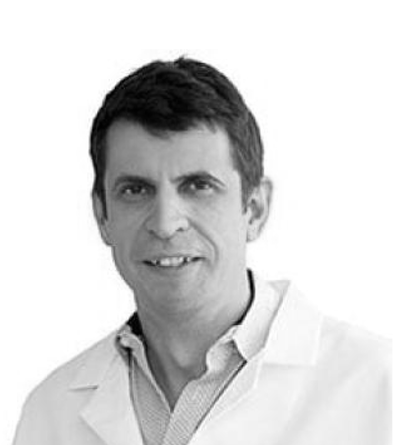
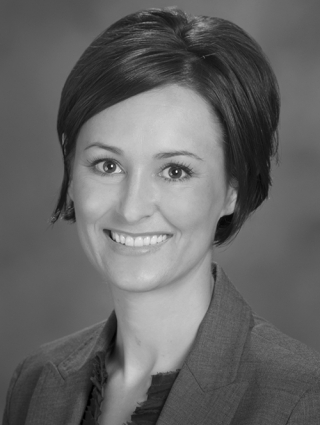
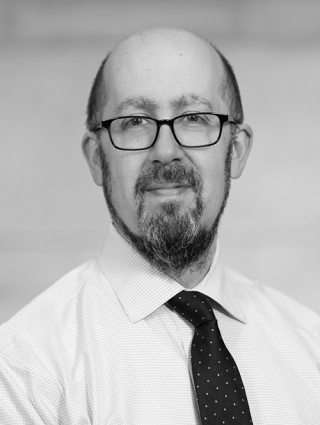
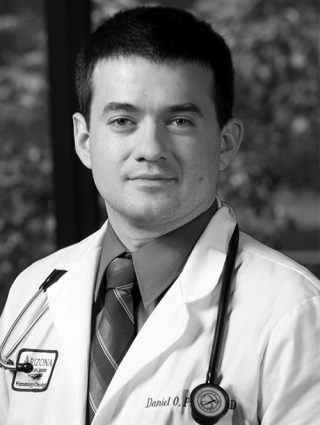

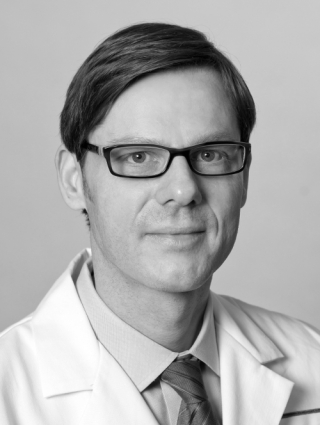
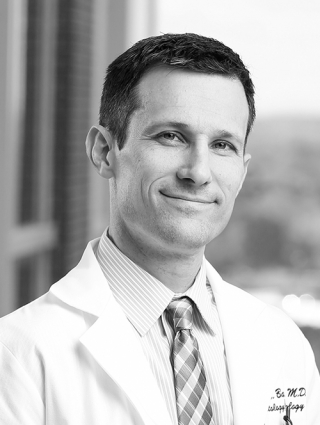
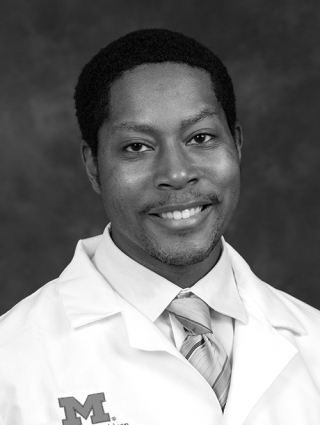
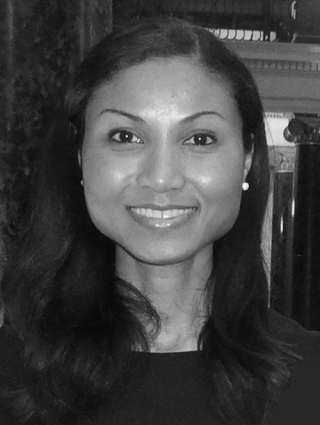
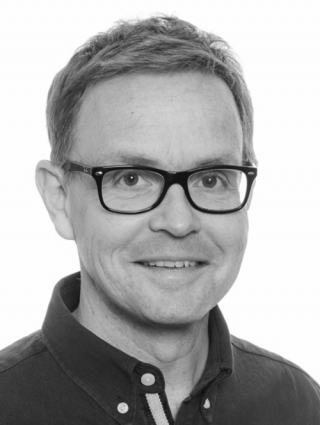
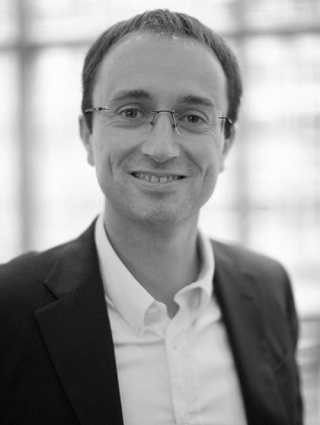
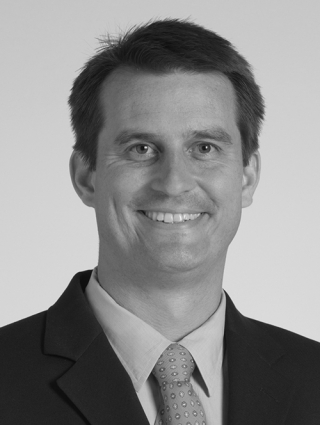
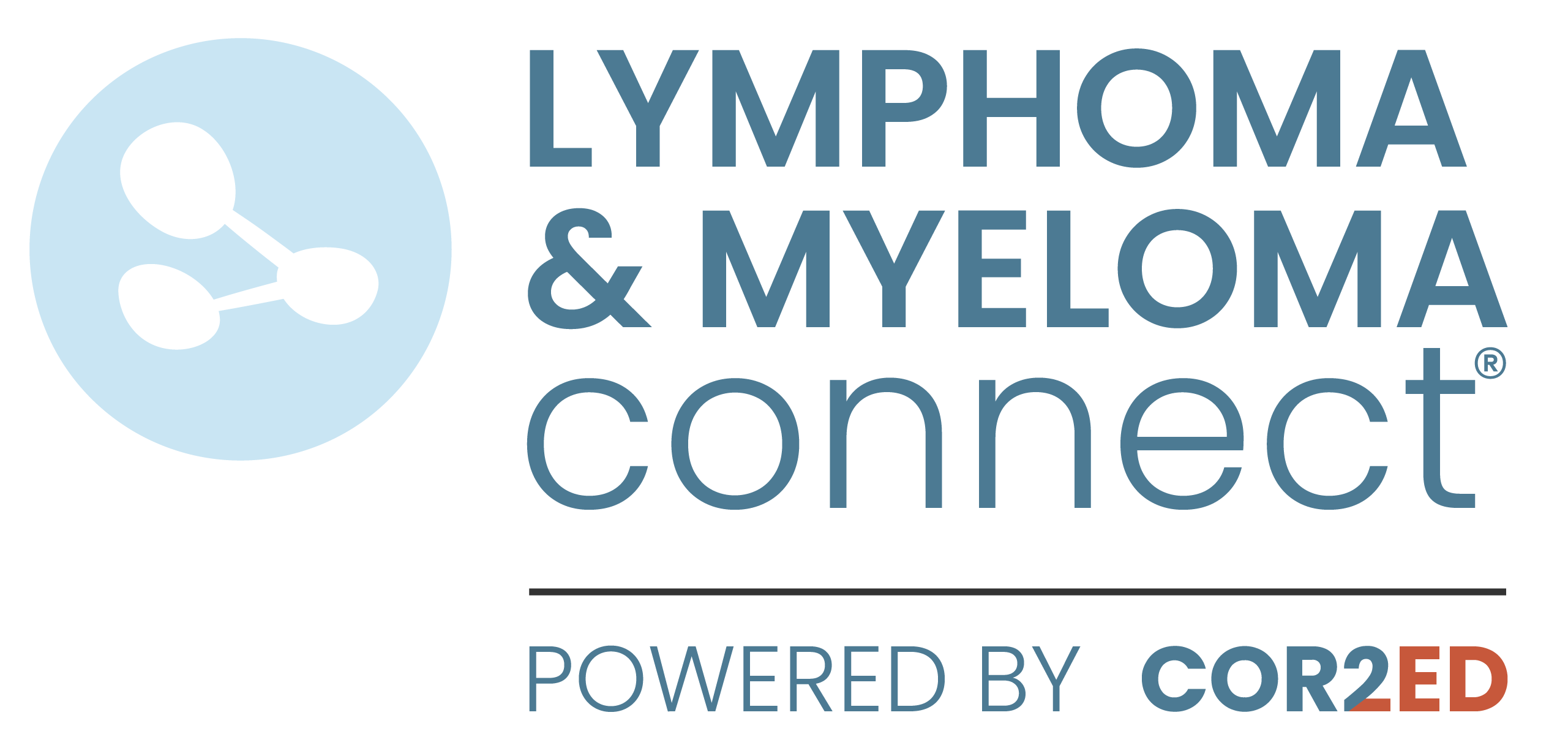


 Downloadable
Downloadable  3 MIN
3 MIN
 Jun 2025
Jun 2025 